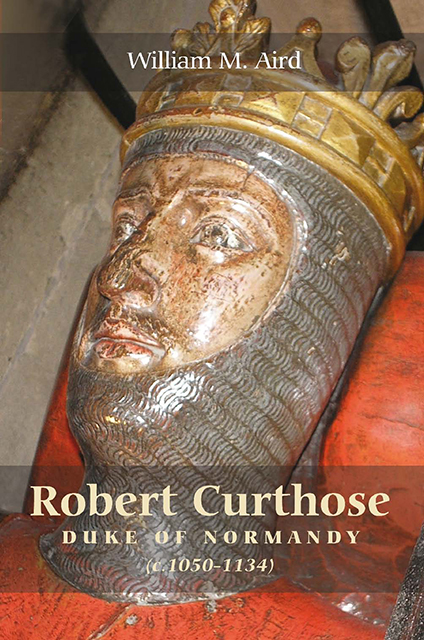Book contents
- Frontmatter
- Contents
- Dedication
- Acknowledgements
- Abbreviations
- Maps
- Genealogy: The Family Connections of Robert Curthose
- Introduction
- Chapter One Childhood
- Chapter Two The Dutiful Son
- Chapter Three The King's Son
- Chapter Four The Duke of Normandy, 1087–1096
- Chapter Five Miles Christi: The Soldier of Christ, 1095–1099
- Chapter Six The Returning Hero, 1100–1106
- Chapter Seven The Captive
- Epilogue
- Bibliography
- Index
Chapter Six - The Returning Hero, 1100–1106
Published online by Cambridge University Press: 03 March 2023
- Frontmatter
- Contents
- Dedication
- Acknowledgements
- Abbreviations
- Maps
- Genealogy: The Family Connections of Robert Curthose
- Introduction
- Chapter One Childhood
- Chapter Two The Dutiful Son
- Chapter Three The King's Son
- Chapter Four The Duke of Normandy, 1087–1096
- Chapter Five Miles Christi: The Soldier of Christ, 1095–1099
- Chapter Six The Returning Hero, 1100–1106
- Chapter Seven The Captive
- Epilogue
- Bibliography
- Index
Summary
An Italian Heiress
Duke robert wintered in Apulia as a guest of Count Geoffrey of Conversano, Count Roger I of Sicily and Roger Borsa, duke of Apulia. Robert's hosts celebrated his achievements on the Crusade and were doubtless regaled with the duke's exploits, which had done so much to enhance his reputation.
Robert's health may have suffered on the Crusade and he may have taken advantage of the medical expertise of the Southern Italians, as well as the milder winter climate, to recuperate. In the nineteenth century it was suggested that Robert was wounded at the fall of Jerusalem and sought treatment at Salerno. He was advised that the wound needed to be drained and only his wife was prepared to suck out the poison. Robert recovered and, so it was said, was given a set of medical precepts to aid his recovery. This medical treatise was known as the Regimen Sanitatis Salernitanum. The story is not implausible, and it may be one of the many legends that became associated with the duke.
However, the negotiations to marry Sibyl, the daughter of Geoffrey of Conversano, were probably the major reason for Robert remaining in Apulia. Geoffrey was a nephew of Robert Guiscard, late duke of Apulia. It was perhaps during the winter of 1096–7, while waiting to cross the Adriatic, that Robert first saw Sibyl and began the marriage negotiations. Orderic reported that Robert ‘fell in love’ with Sibyl. ‘She was truly good in character,’ Orderic wrote, ‘endowed with many virtues and lovable to all who knew her.’ Orderic's praise for Sibyl's virtues is worth noting: it was not simply his standard description of a female aristocrat.
No details of the marriage negotiations survive, but Robert secured gold, silver and precious objects from his father-in-law, ‘which [Robert] providently intended to hand over to his creditor in order to recover his duchy in peace’. Uncharacteristically, then, Orderic attributed to Robert the foresight to secure the resources to repay the debt to William Rufus.
Robert's marriage to Sibyl altered the dynamic in the relationship with his brothers. Although Robert had been betrothed and had at least one pre-marital liaison, there is no evidence that the Conqueror, or indeed Robert himself, intended to negotiate a marriage before 1100.
- Type
- Chapter
- Information
- Robert `Curthose', Duke of Normandy [c. 1050-1134] , pp. 191 - 244Publisher: Boydell & BrewerPrint publication year: 2011



